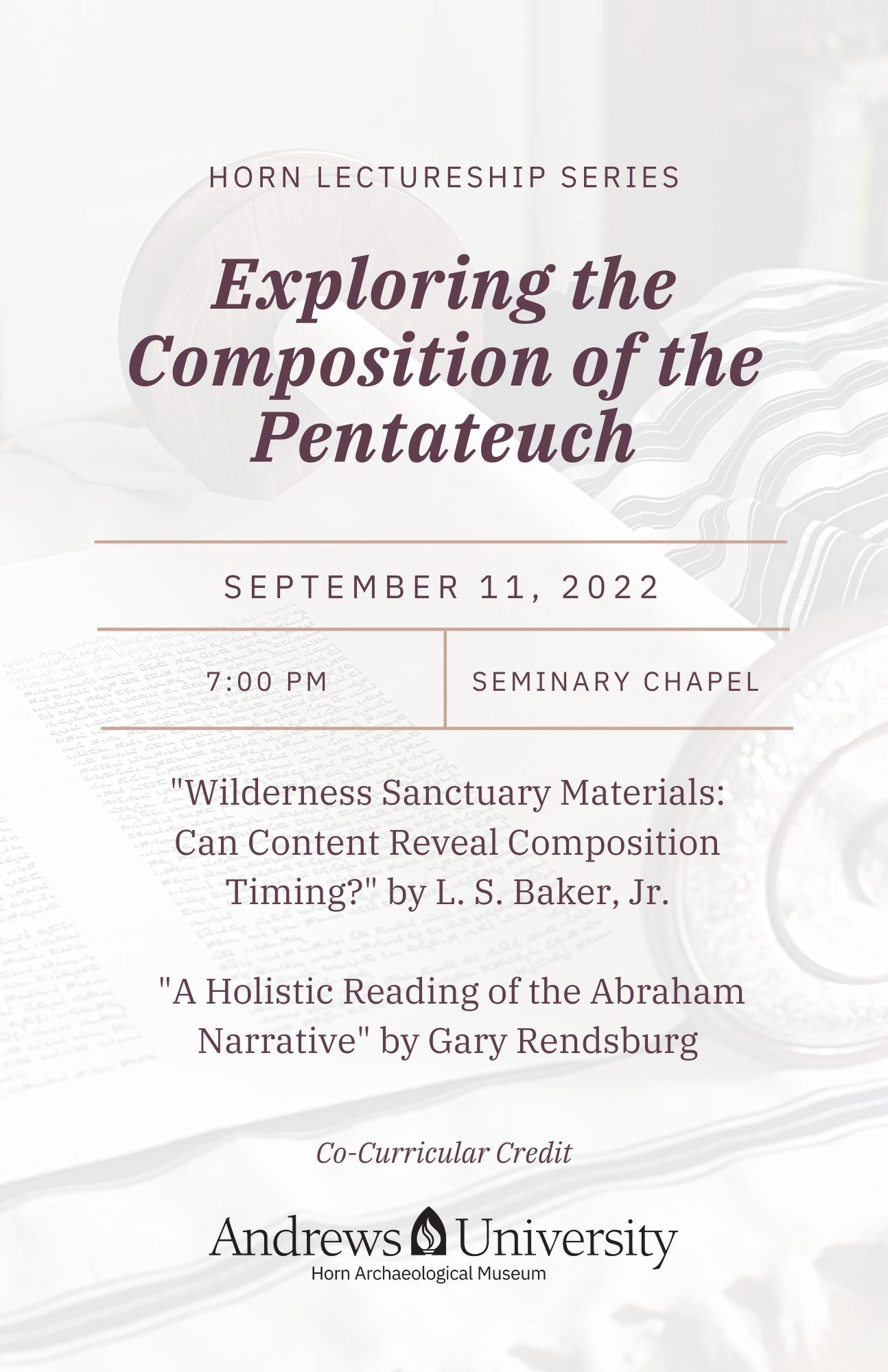Was Leviticus Composed by Aaronide Priests to Justify Their Cultic Monopoly?
Presenter Status
Professor of Hebrew Bible and Ancient Near Eastern Languages, Department of Old Testament
Start Date
4-4-2016 9:00 AM
End Date
4-4-2016 9:50 AM
Session
Cultic Laws and Alleged Priestly Sources
Presentation Abstract
Critical scholars maintain that chapters 1–16 of Leviticus reflect the perspectives and interests of certain priests who composed this P (Priestly) material. Supporting this consensus, James W. Watts has proposed on the basis of rhetorical analysis that the major purpose for writing Lev 1-16 was to justify the Aaronide priestly monopoly over the cult (Ritual and Rhetoric in Leviticus: From Sacrifice to Scripture [Cambridge: Cambridge University Press, 2007], 143). Watts finds historical evidence for this Aaronide hierocracy only in the Second Temple period, when the Pentateuch began to function as authoritative scripture. Therefore, he concludes that P’s persuasive rhetoric applied to priestly control during this period, whether Lev 1-16 was authored during the exilic period or earlier, or during the early Second Temple period (Ibid., 143–50). However, there are several reasons to challenge this argumentation, including (but not limited to) the following:
- Leviticus mandates much more than Aaronide domination.
- The right of priests to perform potentially dangerous service, for which they receive “agents’ commissions” as support for their service, is not primarily to benefit them.
- 1 Samuel 2 provides evidence for an Aaronide monopoly during an earlier historical period. Here the sons of Eli are condemned for overstepping their bounds by forcefully misappropriating sacrificial portions that belong to YHWH and the people, but the exclusive priestly right to authorized prebends from “all of the Israelites’ food offerings” (v. 28 CEB) is affirmed.
- If priests fictitiously claimed that their entitlements were based on earlier prophetic authority (Moses), presumably they would have been subject to prophetic contradiction or critique, of which we have plenty of examples concerning other priestly failings, but none regarding invention of cultic rules.
Biographical Sketch
Roy E. Gane is Professor of Hebrew Bible and Ancient Near Eastern Languages at the Seventh-day Adventist Theological Seminary of Andrews University. Originally from Australia, he earned his Ph.D. in biblical Hebrew language and literature at the University of California, Berkeley, specializing in Leviticus under Jacob Milgrom.
Gane has given presentations on six continents and has authored numerous articles and seven books: (1) God’s Faulty Heroes, (2) Altar Call, (3) Ritual Dynamic Structure, (4) Leviticus, Numbers (NIV Application Commentary), (5) Cult and Character: Purification Offerings, Day of Atonement, and Theodicy, (6) Who’s Afraid of the Judgment? The Good News About Christ’s Work in the Heavenly Sanctuary, and (7) In the Shadow of the Shekinah: God’s Journey With Us. He has also contributed the Leviticus portion of the Zondervan Illustrated Bible Backgrounds Commentary, the Leviticus and Numbers portions of The Baker Illustrated Bible Commentary, study notes on five biblical books for The Andrews Study Bible, and was the primary translator for the Leviticus portion of the Common English Bible.
Roy is married to Constance, who holds a Ph.D. in Mesopotamian Archaeology from the University of California, Berkeley. Connie also teaches at Andrews University and is Curator of the Siegfried H. Horn Museum. Together, Connie and Roy have excavated in Iraq, Jordan, and Israel.
Was Leviticus Composed by Aaronide Priests to Justify Their Cultic Monopoly?
Critical scholars maintain that chapters 1–16 of Leviticus reflect the perspectives and interests of certain priests who composed this P (Priestly) material. Supporting this consensus, James W. Watts has proposed on the basis of rhetorical analysis that the major purpose for writing Lev 1-16 was to justify the Aaronide priestly monopoly over the cult (Ritual and Rhetoric in Leviticus: From Sacrifice to Scripture [Cambridge: Cambridge University Press, 2007], 143). Watts finds historical evidence for this Aaronide hierocracy only in the Second Temple period, when the Pentateuch began to function as authoritative scripture. Therefore, he concludes that P’s persuasive rhetoric applied to priestly control during this period, whether Lev 1-16 was authored during the exilic period or earlier, or during the early Second Temple period (Ibid., 143–50). However, there are several reasons to challenge this argumentation, including (but not limited to) the following:
- Leviticus mandates much more than Aaronide domination.
- The right of priests to perform potentially dangerous service, for which they receive “agents’ commissions” as support for their service, is not primarily to benefit them.
- 1 Samuel 2 provides evidence for an Aaronide monopoly during an earlier historical period. Here the sons of Eli are condemned for overstepping their bounds by forcefully misappropriating sacrificial portions that belong to YHWH and the people, but the exclusive priestly right to authorized prebends from “all of the Israelites’ food offerings” (v. 28 CEB) is affirmed.
- If priests fictitiously claimed that their entitlements were based on earlier prophetic authority (Moses), presumably they would have been subject to prophetic contradiction or critique, of which we have plenty of examples concerning other priestly failings, but none regarding invention of cultic rules.




Images